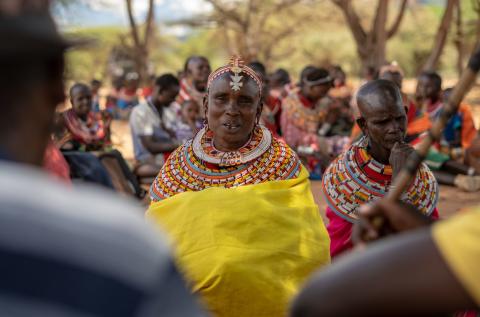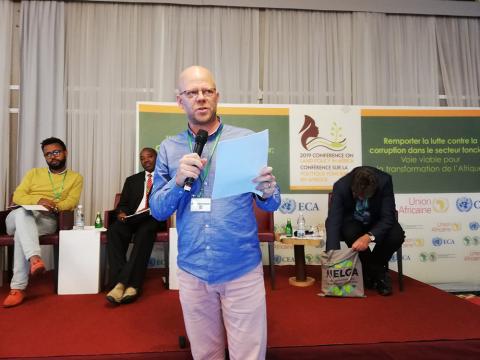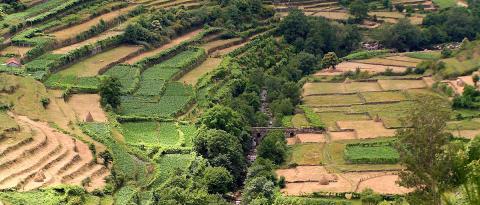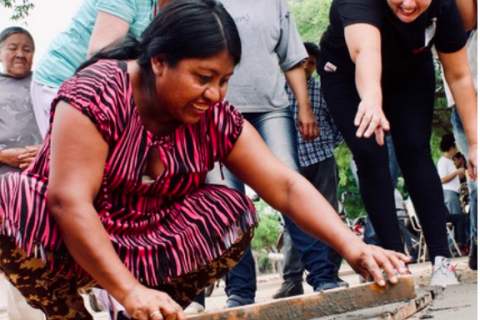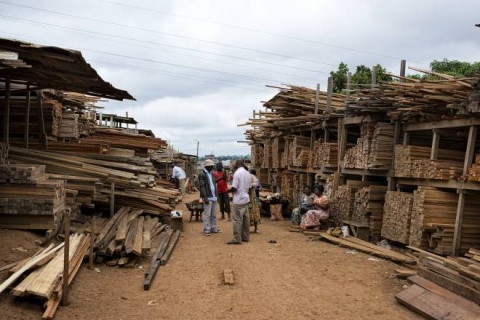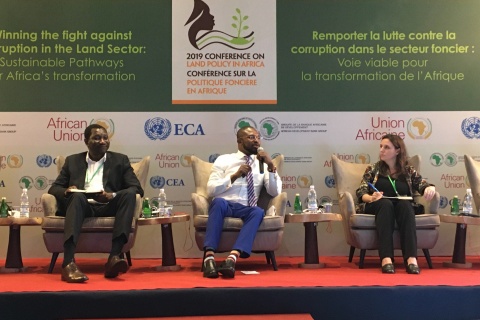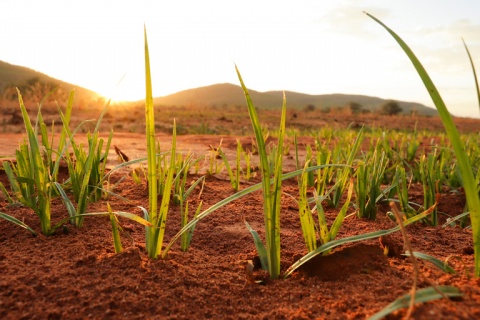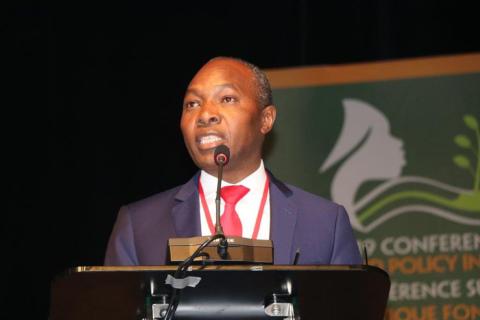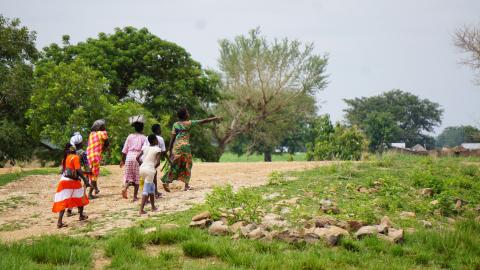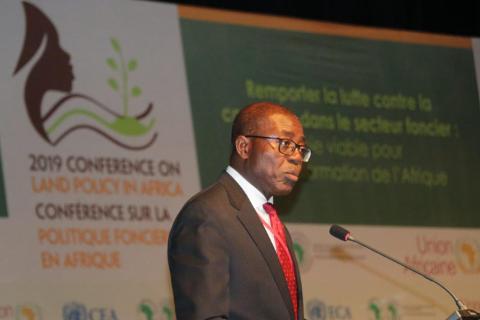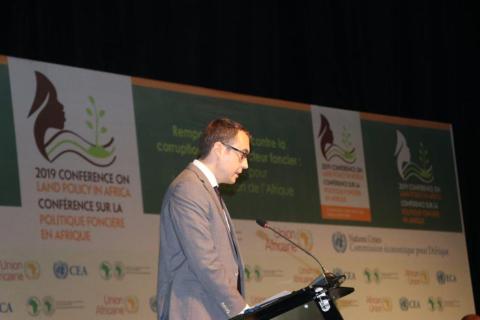Discover hidden stories and unheard voices on land governance issues from around the world. This is where the Land Portal community shares activities, experiences, challenges and successes.
 Follow our
Follow our
Sustainable Development Goals
Blog Series!
Interested in land corruption?
Follow our Land & Corruption Blog Series
for in-depth perspectives from the experts.
Issues
Geographical focus
Matito Leruso was born and raised in the herding community of Lengurma in Isiolo County. Communal grazing land has been central to her community’s livelihood, wellbeing, and identity for generations, but they have never had their legal rights to govern it recognized. None of Kenya’s thousands of pastoralist communities have. This changed in 2016, with the passage of the Community Land Act. Since then, Matito has joined other residents of Lengurma in working to understand, use and shape the new law to ensure that their community land rights are respected and upheld.
Marc Wegerif, of the Human Economy Program within the Centre for the Advancement of Scholarship at University of Pretoria, was presenting at the 2019 Conference on Land Policy in Africa (CLPA) in Abidjan Cote d’Ivoire on 28th November 2019. The theme of the CLPA was “Winning the fight against Corruption in the Land Sector: Sustainable Pathway for Africa’s Transformation”.
- Participation and sectoriality in development
Author: Priti Darooka [1] with contributions by Farida Akhter
I want to thank IWRAW Asia Pacific for organising a two day strategic dialogue on Women Human Rights and Climate Justice. Some of the points shared here are points discussed at this dialogue in Bangkok in November 2019.
I also want to thank contributions by Feminist Land Platform members, especially Farida Akhter of Bangladesh.
Africa remains a net food importing region spending more than USD 35 billion annually on food imports, although this continent has about 65% of the uncultivated arable land left in the world to feed 9 billion people by 2050 (AfDB, 2016). Land tenure remains a major challenge across the continent and only about 10% of Africa’s rural land is registered. In Cameroon, in particular, land as an asset, an input or an income source is not equally possessed by any individual or household with respect to gender and place of living.
The session ”Exploring tools and approaches towards responsible youth and gender sensitive land governance and transparency in Africa” took place on November 27th, 2019 in the framework of the Conference on Land Policy in Africa and was organized by the Global Land Tool Network and the International Land Coalition. Land is both a source of livelihood and life line for most communities in Africa and is considered a strategic social and economic resource for communities in rural and urban areas.
Cosmas Milton Ochieng, an expert in natural resource governance and economic development in Africa, is the Director of the African Natural Resource Centre at the African Development Bank.
In collaboration with the African Union Commission and the United Nations Economic Commission for Africa, the African Development Bank will host the 3rd Edition of the Conference on Land Policy in Africa in Abidjan from 25 to 29 November 2019.
In this interview, Ochieng shares key insights into why the conference matters for Africa.
It is my privilege to address you, on behalf of the Executive Secretary of the United Nations Economic Commission for Africa, Dr. Vera Songwe, and welcome you to the 3rd Conference on Land Policy in Africa.
I would like to extend our gratitude to the Republic of Cote D’Ivoire and the African Development Bank for hosting the third Conference on Land Policy in Africa. As the host institution of the second land conference, we recognize the tremendous effort that goes into hosting this conference.
I bring you warm greetings from H.E. Mousa Faki Mahamat, the Chairperson of African Union Commission. It is my honour and pleasure to deliver this statement at the opening of the Conference on Land Policy in Africa. I salute the African Development Bank (AfDB), the Government of Côte D’Ivoire and all partners for hosting and successfully organizing the 2019 Conference on Land Policy in Africa.
The land sector is increasingly being cited as a corruption hub. Many countries across the globe are grappling with land-related corruption that dates to the colonial years and which have metamorphosed into historical injustices and continue to be a source of conflict and violation of basic human rights. Cases of land grabbing, compensation-less expropriation, gender-based discrimination in accessing and ownership of land and related resources, illegal mining deals, bribing to access land administration services among others are not new in the lands sector.
The Declaration on Land Issues and Challenges in Africa very wisely prioritised three key objectives:
- Land policy development and implementation;
- Allocation of adequate budgetary resources to land management and administration;
- And the establishment of enabling conditions for institutional innovation in land policy and governance frameworks on the continent.
As we gather here today, so much has been achieved over the past decade. And yet we know that a great deal of work still remains to be done.
Africa is a rich continent. It has vast agricultural and land resources and thus the potential to feed all people living on the continent. We observe technological improvements in agriculture, as well as in geospatial sciences and other relevant land sectors. Thus, the tools are available to implement policies to ensure fair and sustainable land policy in every country. However, there is still a considerable gap in what is proven to work and what is implemented in many countries.

